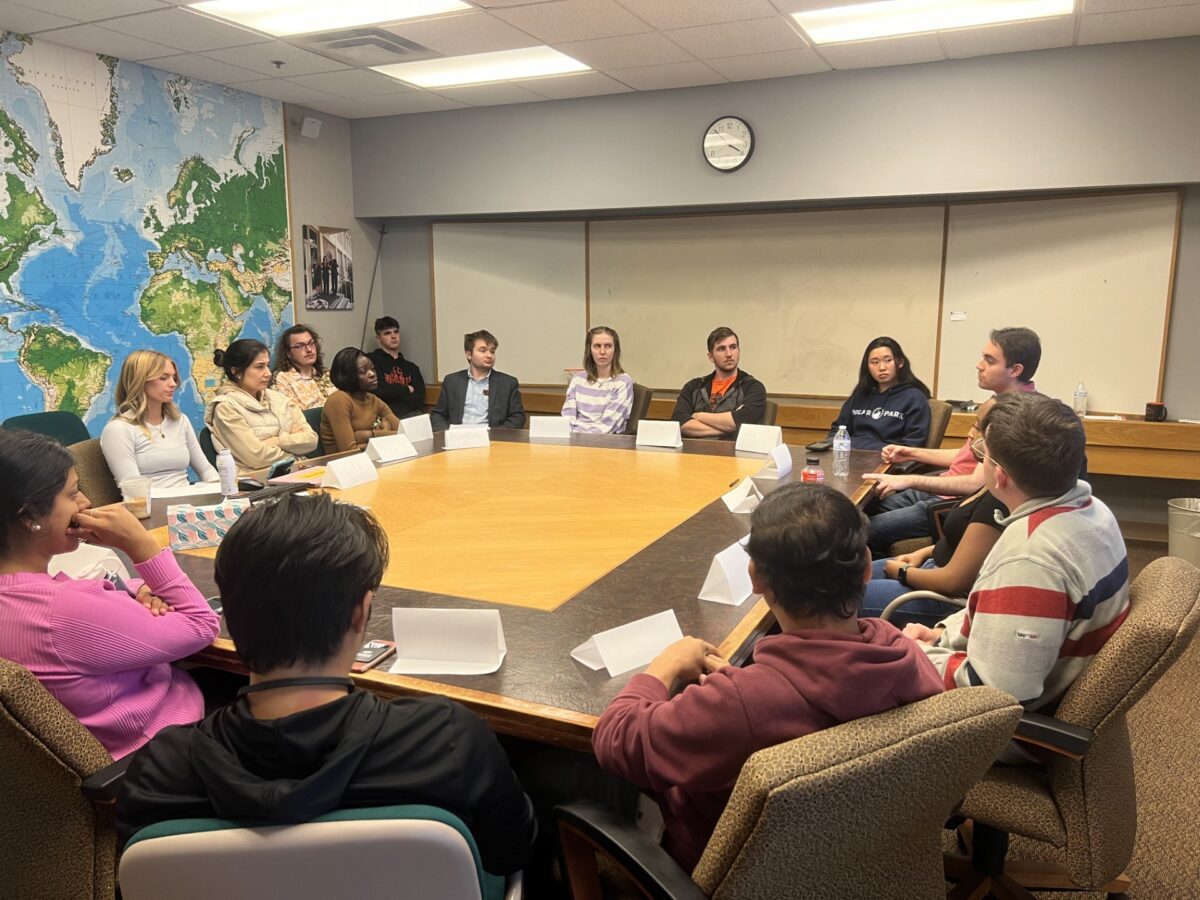In a time of global unrest and uncertainty, perhaps no educational endeavor is more relevant than one where students represent different countries and come together to solve world problems. That’s exactly what Model United Nations (MUN), a competitive collegiate program, is all about: an exercise in global empathy.
“Model United Nations is just the absolute perfect [way] to cultivate empathy,” says Helen Fullerton, a 2024 graduate of Oklahoma State University and former participant. “It completely allows you to shift your mindset away from what you know – what we’re raised in – and see the world from a different perspective.”
MUN is a simulation of the United Nations where students take on the roles of diplomats representing different countries, says Cheryl Van Den Handel, Ph.D., associate professor of political science and MUN faculty adviser at Northwestern State University.
“The goal is to debate and negotiate solutions to world issues,” she says. “So they deal with things like climate change, humanitarian disasters, migration flows, refugees, internally displaced persons, drought and the environment, starvation, war and other kinds of conflicts.”
Participants attend conferences, where they go head to head with students from other schools. They research the country they are representing and take part in a general assembly, as well as economic, social and security council committees.
“They become delegates of that country,” Van Den Handel says. “So they have to put aside their own positions on issues, which can sometimes be difficult, and become a diplomat on those issues for that country.”
Students write position papers that demonstrate their position on different topics, give speeches, debate and negotiate with delegates from other countries – all while staying in character and working toward solutions.
Prior to each conference, participants get to choose three countries they would like to represent. But sometimes they end up advocating for a country with issues that are completely unknown to them.

“You may absolutely disagree with most of their policies and how they would actually vote,” Fullerton says. “But that allows you to take a deep dive in and see where they’re coming from and really understand how different countries across the world feel and how they’re experiencing global policy.”
While students work diligently to critically assess what is going on in the world and how to come up with solutions, they don’t always succeed.
“They find out just how difficult it is to achieve any kind of consensus among a group of people,” Van Den Handel says. “Everyone has their their own issues and their own positions that they bring to the table. And you know, the more people you have – MUN is 203 countries – the more difficult it is to to develop any kind of consensus.”
In addition to attending conferences, colleges and universities with MUN programs work to cultivate a sense of global awareness for everyone on campus.
“At Oklahoma State, we’re making sure there’s a space to discuss some of the more touchy global issues that, sometimes, people have seen a lot about in the media but don’t have a full awareness and understanding of,” Fullerton says. “We might have a guest speaker or, for instance, when the Palestinian Hamas conflict began, we had what we called a ‘think tank’ where students could come together and discuss what was going on and make sure that we’re getting all of our facts straight, and just see it from a non-biased and educational perspective.”






















